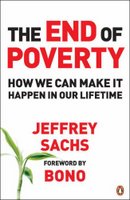Online students fight anti-gay Christian course
Students nationwide have joined an online protest against a campus based Christian course which encourages gay students to suppress their homosexuality.
The controversy surrounding the course called Pure, began after pilot courses were held at Edinburgh University. The pilot was deemed a success and the Edinburgh University Student newspaper printed details of the Universities and Colleges Christian Fellowship plans to roll out the courses across Britain.
The course recommends literature that has been labelled homophobic and suggests students "Say farewell - it’s a No Go!" to homosexual relationships.
What Some of You Were by Christopher Keane is one of the texts recommended by the course. It tells the stories of "ex-gays" who have rejected the temptations of homosexuality in accordance with Christianity. It cites the case of Christopher, a "reformed homosexual", who says: "I shudder to think what may have happened to me if I had gone to a counsellor (or to a church) who had not upheld the Scriptures and had affirmed me in my homosexuality. If that had happened I may well have been dead from AIDS now."
The book also comments on the characteristics of gay relationships, claiming that lifelong, quasi-marital fidelity in homosexual partnerships is a myth, contradicted by the facts. "The truth is that gay relationships are characterized more by promiscuity than by fidelity."
In response to the course, students at Edinburgh set up a Facebook group called "Stop Pure", which has enlisted 1,400 members within a fortnight. Students from around the country have joined from universities such as Oxford, Cambridge, St Andrews and Kings College London.
Group creator Lucy Chambers said: "We want to use the group to help make students aware of the issues raised by the presence of this course on our campuses and to encourage them to make a stand. Facebook is a great means to contact lots of students up and down the country in the space of a few minutes.
"We have already set in motion a process whereby our students’ association is investigating the course and it is our hope that we will be able to use the group, or perhaps set up a new one, to affect change nationwide."
Responding to criticism of the course, a spokesman from the Universities and Colleges Christian Fellowship said: "Surely it’s completely reasonable for a Christian to believe what he or she believes and to say what he or she believes. I am perfectly happy for LGBT members and the gay community at large to be gay – I don’t agree with it but I will defend their right to be gay.
"Remember that you choose your partner, it is a choice, and Christians should have a right to voice their beliefs and not be labelled homophobic."
More from The Times
The controversy surrounding the course called Pure, began after pilot courses were held at Edinburgh University. The pilot was deemed a success and the Edinburgh University Student newspaper printed details of the Universities and Colleges Christian Fellowship plans to roll out the courses across Britain.
The course recommends literature that has been labelled homophobic and suggests students "Say farewell - it’s a No Go!" to homosexual relationships.
What Some of You Were by Christopher Keane is one of the texts recommended by the course. It tells the stories of "ex-gays" who have rejected the temptations of homosexuality in accordance with Christianity. It cites the case of Christopher, a "reformed homosexual", who says: "I shudder to think what may have happened to me if I had gone to a counsellor (or to a church) who had not upheld the Scriptures and had affirmed me in my homosexuality. If that had happened I may well have been dead from AIDS now."
The book also comments on the characteristics of gay relationships, claiming that lifelong, quasi-marital fidelity in homosexual partnerships is a myth, contradicted by the facts. "The truth is that gay relationships are characterized more by promiscuity than by fidelity."
In response to the course, students at Edinburgh set up a Facebook group called "Stop Pure", which has enlisted 1,400 members within a fortnight. Students from around the country have joined from universities such as Oxford, Cambridge, St Andrews and Kings College London.
Group creator Lucy Chambers said: "We want to use the group to help make students aware of the issues raised by the presence of this course on our campuses and to encourage them to make a stand. Facebook is a great means to contact lots of students up and down the country in the space of a few minutes.
"We have already set in motion a process whereby our students’ association is investigating the course and it is our hope that we will be able to use the group, or perhaps set up a new one, to affect change nationwide."
Responding to criticism of the course, a spokesman from the Universities and Colleges Christian Fellowship said: "Surely it’s completely reasonable for a Christian to believe what he or she believes and to say what he or she believes. I am perfectly happy for LGBT members and the gay community at large to be gay – I don’t agree with it but I will defend their right to be gay.
"Remember that you choose your partner, it is a choice, and Christians should have a right to voice their beliefs and not be labelled homophobic."
More from The Times







